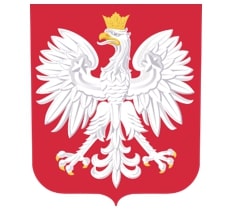Pleasantness and Motivational Intensity of Experienced Emotion Influence Affect Labeling in Men and Women: Does Inhibitory Control Play a Role?
Fake News are Easier, More Emotional and Less Complex: Some Evidence from Spanish
The Impact of a Communicative-Metacognitive Intervention on Linguistic Majors’ Self-Actualisation
Recognizing Communicative Intentions Lies at the Heart of Irony Processing; and Bilinguals Might do it Better: A Literature Review
eISSN: 2083-8506, pISSN: 1234-2238
Psychology of Language and Communication is an international, peer-reviewed scientific journal committed to publishing high-quality research in the areas of language and communication. We are operated by and affiliated with the Faculty of Psychology, University of Warsaw (Poland). We have adhered to the Diamond Open Access standard since our inception in 1997, allowing both the submission of manuscripts and access to full-text articles free of charge.
Psychology of Language and Communication publishes in the Volume Open mode. A new, single Volume Open is initiated at the beginning of each calendar year. Articles accepted for publication are continuously published in the yearly Volume Open, at a rate of about 1-2 articles per month.
We operate under Fair Open Access Principles and CC BY-NC-ND 4.0 license. We assure the quality of our manuscripts by a thorough assessment by the editorial team and a double-blind peer review process. We follow the COPE publication ethics principles.
Psychology of Language and Communication is part of the Free Journal Network since 2024. For more information, please visit the FJN website.
Scope
We publish articles on various aspects of psychological studies on language and communication processes in both children and adults. This includes language production and comprehension, the brain's cognitive and social bases of speech, the nature and strategies of various types of discourse, language development, disorders of linguistic and communicative competences, corpus studies, social media communication, psychological text analysis, social perception of spoken and written language, and human-AI communication.
Psychology of Language and Communication integrates previously disparate perspectives and approaches in the psychology of communication into one place, promoting an interdisciplinary perspective on language and communication and providing a forum for researchers from all over the world. We welcome manuscripts representing perspectives in psychology, linguistics, sociology, philosophy, and computer science, provided they align with the journal's central focus. We believe that through these multiple perspectives, we can contribute to a more comprehensive understanding of the role that language and communication processes play in our world. We welcome original empirical studies (as full-length articles or short reports), replication studies, and reports of null findings. We are also keen to report on methodological advancements in the fields of language and communication research, theoretical papers, and literature reviews.
We are eager to collaborate with students and Early Career Researchers who have conducted solid work but might require additional support and feedback to prepare their work for peer-reviewed publication.
We encourage the proposal of special issues in two ways. First, researchers can suggest calls for papers, act as guest editors, and collaborate with us. Secondly, we invite conference and symposium organizers to contact us in advance regarding the publication of special issues. We are eager to provide an outlet for high-quality, thematically consistent collections of papers following a conference. Possible themes include both novel areas and approaches in the psychology of language and communication as well as overviews and critical reflections on established topics.
Why submit
- All submissions undergo a preliminary assessment by a member of the Editorial Board and are then sent out for a thorough evaluation to two or three peer reviewers in a double-blind review process, where the identities of authors and reviewers are kept confidential.
- Promotion of each published article.
- Fast publishing.
- Publishing without charge.
We are indexed in the following databases, among others:
- Scopus
- DOAJ
- PsychINFO
- EBSCO
Rejection Rate
- 80%
Polish Government Financial Support
Psychology of Language and Communication otrzymuje w latach 2022-2024 dofinansowanie w ramach programu „Rozwój Czasopism Naukowych” Ministerstwa Nauki i Szkolnictwa Wyższego zmierzającego do podniesienia poziomu praktyk wydawniczych i edytorskich, zwiększenia wpływu czasopism na rozwój nauki oraz utrzymania się czasopism w międzynarodowym obiegu naukowym (nr rejestracyjny wniosku/umowy: RCN/SP/0485/2021/1; całkowita wartość zadania: 61 000,00 PLN; przyznane środki: 39 833,00 PLN). Dofinansowanie w ramach programu zostało przeznaczone na opłatę licencji na użytkowanie programu do składu artykułów i systemu wydawniczego, współpracę z wydawnictwem w zakresie obsługi strony internetowej i publikacji artykułów oraz wynagrodzenie dla redaktora językowego i technicznego.
In 2022-2024, Psychology of Language and Communication received financing from the Ministry of Science and Higher Education, Poland, as part of the „Rozwój Czasopism Naukowych” program aimed at increasing the impact of scientific journals on the development of science and the maintenance of scientific journals within the international scientific community (application registration no. RCN/SP/0485/2021/1; total value of the initiative: 61 000.00 PLN; funds granted from the Ministry: 39 833,00 PLN). The program was used to finance the license for typesetting software and the editorial system software, finance cooperation with the publisher in terms of website and publication management, and remuneration for the technical copyeditor.

Archiving
Sciendo archives the contents of this journal in Portico - digital long-term preservation service of scholarly books, journals and collections.
For previous issues (1997–2007) go to plc.psychologia.pl/
Plagiarism Policy
The editorial board is participating in a growing community of Similarity Check System's users in order to ensure that the content published is original and trustworthy. Similarity Check is a medium that allows for comprehensive manuscripts screening, aimed to eliminate plagiarism and provide a high standard and quality peer-review process.

 Orcid-Profil
Orcid-Profil